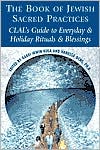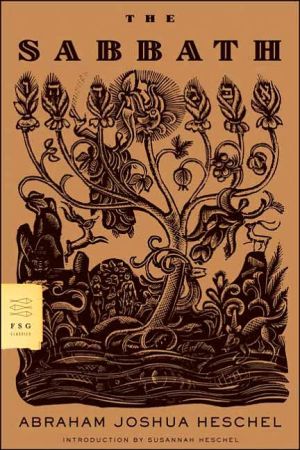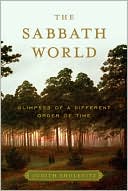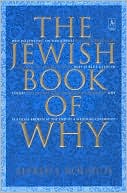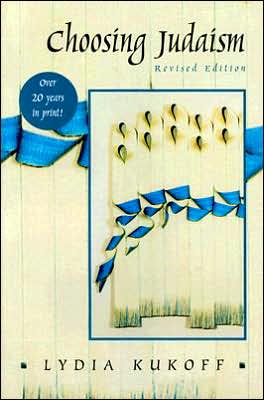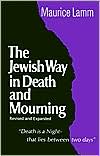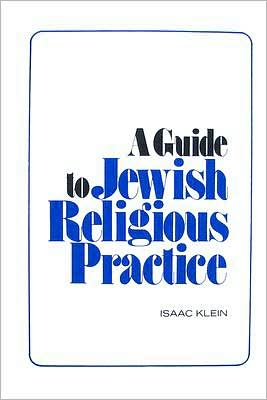The Book of Jewish Sacred Practices: CLAL's Guide to Everyday and Holiday Rituals and Blessings
Discover how to make virtually any moment in your day a significant part of a meaningful Jewish life.\ \ As we have discovered, and as our sages have long known, there is no experience in the life of a Jew that cannot be marked in Jewish ways. The book you hold in your hands is the result of the kinds of rituals we have sculpted together over the years. It is not a prayer book or even a compendium of obligatory Jewish rituals. Rather, it is a source for all to use creatively.\ \ Decades of...
Search in google:
Discover how to make virtually any moment in your day a significant part of a meaningful Jewish life. As we have discovered, and as our sages have long known, there is no experience in the life of a Jew that cannot be marked in Jewish ways. The book you hold in your hands is the result of the kinds of rituals we have sculpted together over the years. It is not a prayer book or even a compendium of obligatory Jewish rituals. Rather, it is a source for all to use creatively.Decades of experience by CLAL-The National Jewish Center for Learning and Leadership in connecting spirituality with daily life come together in this one comprehensive handbook. In these pages, you have access to teachings that can help to sanctify almost any moment in your day.Offering a meditation, a blessing, a profound Jewish teaching, and a ritual for more than one hundred diverse everyday events and holidays, this guide includes sacred practices for: *Lighting Shabbat candles *Blessing your parents *Running a marathon *Visiting the sick *Building a sukkah *Seeing natural wonders *Moving into a new home *Saying goodbye to a beloved pet *Making a shiva call *Traveling...and much more Drawing from both traditional and contemporary sources, The Book of Jewish Sacred Practices will show you how to make more holy any moment in your daily life. Publishers Weekly Readers who want to create significance out of ordinary as well as remarkable moments will find an invaluable resource in this guidebook from CLAL the National Jewish Center for Learning and Leadership. There's a ritual to mark almost every possible occasion, from the mundane (making a list of things to do) to the sublime (falling in love). Organizing a room becomes a symbolic act of repair, of bringing order to a chaotic world. Quitting smoking, running a marathon, honoring a teacher, sending a child to college, mourning a pet these experiences that until now have not been addressed by Jewish tradition receive a new sanctity as they serve as potential "tools for awakening and self-transformation." The contributing rabbis and scholars from every denomination of Judaism also try to renew rituals that may have become routine, like lighting Sabbath candles or cleaning the house for Passover. "What we get from each moment ultimately depends on the attention (kavanah) we give to those moments," writes rabbi and editor Kula, CLAL's president. More than 100 occasions are classified into 11 sections: everyday life; parents and children; relationships; special moments; healing; life and death; learning; leadership and communal life; Israel; tzedakah; and holy days. Each event includes a meditation, a ritual, blessings and teachings drawn from biblical or rabbinic texts. This traditional Jewish framework should appeal to Jewish readers; non-Jewish readers may also enjoy the inclusive and thought-provoking approach, which does not require giving up or adopting new religious beliefs. (Dec.) Copyright 2001 Cahners Business Information.
\ \ \ \ Chapter One\ \ \ EVERYDAY LIFE\ \ \ WAKING UP\ \ \ As soon as I sit up in bed and see\ the light through the windows, I\ am suddenly aware I'm alive and a\ new day has begun. Then I say to\ myself something like this:\ "Thank you, God. I know You're\ still out there\ doing Your thing,\ because here I am\ again doing my\ thing, thanks to\ You." That's my\ version of the\ Modeh Ani prayer,\ which appears in my siddur as: "I\ render thanks unto Thee, everlasting\ King, who has mercifully\ restored my soul within me; Thy\ faithfulness is beyond measure."\ As I continue my morning ritual, I\ do my own riffs on the traditional\ morning prayers. As I put on\ my glasses, I say: "Whoa! I can\ see again!" for "Blessed art\ Thou ... who openest the eyes\ of the blind." As\ I pull my body\ out of bed: "I'm\ standing on my\ feet. Thank You!"\ for "Blessed art\ Thou ... who raisest\ up those who\ are bowed down." As I dress:\ "Clean, fresh clothes!" for\ "Blessed art Thou ... who clothest\ the naked."\ \ \ \ Meditation\ [HEBREW TEXT NOT REPRODUCIBLE IN ASCII]\ Modeh ani l'fanekha.\ \ \ Thank You, God, for waking me up and giving\ me another day.\ \ \ Ritual\ \ \ After waking and saying your own version of Modeh\ Ani, pause, even if it's only for a few seconds, to register:\ it really is a miracle to be alive for this new day! It\ doesn't really matter what language you use, or whether\ you say it out loud or to yourself. Just stop and notice:\ I'm awake, I can see, I'm getting up, I'm washing, I'm\ dressing. Be aware of the feelings that come as you make\ these observations. It is these feelings that generated the\ traditional prayers in the first place.\ \ \ Blessing\ \ \ With every part of my being I praise the One who is clothed\ in splendor and majesty, wrapped in light as in a garment,\ unfolding the heavens like a curtain.\ \ \ Teaching\ \ \ How long will you lie there, lazybones? When will\ you wake from your sleep? A bit more sleep, a bit\ more slumber, a bit more hugging yourself in bed.\ (Proverbs 6:9-10)\ \ \ This assignment originated from the Baal Shem\ Tov's advice that every Jew should make 100 blessings\ a day. Did they have to be in Hebrew? Did\ they have to be only for Jewish things? I explained\ to the class that the idea of the homework was to\ notice all the ways in which their lives were blessed\ and that making 100 blessings would be so challenging\ that they would not have any energy to\ notice anything but blessing.\ (Johanna J. Singer, "100 Blessings a Day," in Traditions by\ Sarah Shendehnan and Avram Davis)\ \ \ PRAYING FOR WHAT WE NEED\ \ \ In theory, praying for what we\ need should be easy. Who knows\ better what we\ need than we do?\ However, we wonder:\ is it okay to\ ask for the very\ private things\ that are important\ to us? Should\ we be distinguishing between\ what we want and what we need?\ And we may wonder:\ if we ask for\ what we need and\ are answered positively,\ what are\ we bound to do\ in return?\ \ \ \ [HEBREW TEXT NOT REPRODUCIBLE IN ASCII]\ Barukh atah she'asah\ li kol tzorki\ Blessed is the One who\ provides for all my needs\ \ \ Meditation\ A Prayer for What I Need\ \ \ We used to pray for wine, flour, oil.\ We knew the deal:\ We pleased You, and asked for the things,\ we needed.\ We expected You would come through.\ I still need wine, flour, and oil,\ But I do not ask for them.\ (The market is just down the street.)\ This does not mean You are off the hook.\ As I see it, the deal stands:\ My coming through,\ My asking for what I cannot get alone.\ These are the staples:\ Love, health, work, protection.\ And this is what I need now: __________________.\ I need to have the courage to call out to You\ when I am in need.\ I need You to be ready to hear me.\ \ \ [HEBREW TEXT NOT REPRODUCIBLE IN ASCII]\ Min ha'meitzar karati Yah, anani\ va'merchav Yah.\ \ \ I have called You from tight places,\ You answered me with expansiveness.\ \ \ Ritual\ \ \ As you begin each day, either during the traditional\ Amidah prayer or, perhaps, as you wait for your coffee,\ set aside a fixed time to focus upon what you need that\ you cannot achieve or acquire on your own. Then ask,\ "Please, God, this is what I need now: ______________."\ \ \ Blessing\ \ \ (After you have prayed for what you need)\ \ \ [HEBREW TEXT NOT REPRODUCIBLE IN ASCII]\ Va'ani t'filati l'kha Adonai ayt ratzon, elohim b'rov\ chasdekha, aneini.\ \ \ Hear my prayer now, and in Your compassionate ways,\ please answer me.\ \ \ [HEBREW TEXT NOT REPRODUCIBLE IN ASCII]\ Barukh atah she'asah li kol tzorki.\ Blessed is the One who provides for all my needs.\ \ \ [HEBREW TEXT NOT REPRODUCIBLE IN ASCII]\ Barukh atah shomei'a t'filah.\ Blessed is the One who hears my prayer.\ \ \ Teaching\ [HEBREW TEXT NOT REPRODUCIBLE IN ASCII]\ Karov Adonai l'khol kor'av.\ God is close to all who call out.\ (Ashrei)\ \ \ According to R. Eliezer: If people pray only according\ to the exact text of the prayer and add nothing\ from their own minds, the prayer is not complete.\ (Babylonian Talmud: Mishnah Brakhot 4:4)\ \ \ WASHING OUR HANDS\ \ \ Hand washing separates us from\ what came before and prepares us\ for what's to come;\ it symbolizes our\ becoming conscious\ of what we\ do and who we\ are. The most familiar\ time for the\ ritual washing of\ hands is before meals, but there\ are other traditional times for special\ hand washing\ rituals. These\ include waking up\ in the morning\ and returning\ home from a cemetery.\ \ \ \ [HEBREW TEXT NOT REPRODUCIBLE IN ASCII]\ Al netilat yadayim\ Upon washing our hands\ \ \ Meditation\ \ \ Source of Blessing, may the washing of my hands\ cleanse me and direct my hands to doing deeds of\ righteousness.\ \ \ \ Ritual\ \ \ First, you may wish to remove any rings you are wearing.\ Then take a cup (preferably one with two handles)\ and fill it with water. With your left hand, hold the\ cup and pour three times over your right hand. Switch\ hands, repeat, lift up your hands, and then say the\ blessing.\ \ \ Blessing\ [HEBREW TEXT NOT REPRODUCIBLE IN ASCII]\ Barukh atah Adonai eloheinu melekh ha'olam, asher\ kidshanu b'mitzvotav v'tzivanu al netilat yadayim.\ \ \ Blessed are You, Lord our God, whose mitzvot make our lives holy\ and who gives us the mitzvah of washing our hands.\ \ \ Teaching\ \ \ Tradition specifies that for ritual washing, the water\ be poured over the hands by human agency, not by\ machine or faucet. The point is that awakening consciousness\ cannot be accomplished by mechanical\ means. Usually you pour water on your own hands\ (on the right hand first), but pouring can also be\ done by someone else as a mark of love or friendship.\ It is also customary to be silent from the\ moment of washing until the challah is broken and\ eaten. The mind is concentrated, and consciousness\ focuses on the bread and the meal to follow.\ (Irving [Yitz] Greenberg, The Jewish Way)\ \ \ EATING\ \ \ The Rabbis of the Talmud once\ said different blessings for\ each kind of food. For delicacies,\ our rabbis said:\ "Blessed are You\ who created all\ kinds of delicacies\ for delight."\ For meats and\ eggs, they said:\ "Blessed are You\ who created life\ to give life." For\ bread: "Blessed\ are You who\ brings out bread\ from the earth." While some rabbis\ taught that only the proper "formula"\ could be recited over\ specific foods, others took a more\ pragmatic view,\ saying, "If you\ were to see a loaf\ of bread and say,\ `What a fine loaf\ this is! Blessed is\ the Holy One\ who created it!'\ you would have\ fulfilled your obligation\ to bless"\ (Babylonian\ Talmud: Brakhot 6).\ \ \ \ [HEBREW TEXT NOT REPRODUCIBLE IN ASCII]\ Barukh ... she'ha'kol\ n'hi'yeh b'dvaro\ Blessed are You ... whose\ word calls all things\ into being\ \ \ Meditation\ \ \ When I sit down at the table, the Divine Presence\ stands behind me. When I say a blessing, the Divine\ Presence pushes forward to receive my words.\ (Adapted from Zohar IV:186b)\ \ \ Ritual\ \ \ Before you are about to eat, pause just long enough to\ compose a blessing that recognizes the specific food that\ you are about to enjoy. As an example, our rabbis offer\ the blessing of a simple shepherd named Benjamin who\ made a sandwich and said, "Brikh rachamana marai d'hai\ pita." "Blessed be the Master of this bread."\ (Babylonian Talmud: Brakhot 40b)\ \ \ Blessing\ \ \ [HEBREW TEXT NOT REPRODUCIBLE IN ASCII]\ Barukh ... she'ha'kol n'hi'yeh b'dvaro.\ Blessed are You ... whose word calls all things into being. (Offer the\ traditional blessing for specific foods, or add your own blessing to\ heighten your awareness of the source of your food.\ ) \ \ \ Teaching\ \ \ Rabbi Yosi the Elder would not have his meal\ cooked until he prayed to God for sustenance.\ Then he waited a moment. Then he would say,\ "Now that the Sovereign has sent sustenance,\ let us prepare it."\ (Zohar 11:62b)\ \ \ When you have eaten and you are satisfied,\ bless God for the good earth that has been\ entrusted to you.\ (Deuteronomy 8:10)\ \ \ Let us take time to bless that which gives us life—sweet\ as the fruit from Eden's tree, filling as Sarah's\ cakes, savory as Jacob's stew, plentiful as the\ manna in the wilderness, liberating as the crunchy\ matzah, fresh as the first harvest brought to the\ Temple, heavenly as the taste of the World to Come\ in the Shabbat challah.\ (CLAL Faculty)\ \ \ MAKING A LIST OF THINGS\ TO DO\ \ \ Each morning my father consults\ his list of things to do, which is\ numbered clearly and prioritized\ on a long yellow\ pad. "Buy milk\ and shredded\ wheat" may be\ number one, or\ "Exercise bike at\ the JCC." Some\ days, other important\ items appear, such as\ doctors' appointments, anniversaries,\ birthdays, shiva calls, and\ preparations for\ holidays and vacations.\ One thing\ is for sure: If it\ isn't on the list, it\ probably will not\ get done.\ \ \ \ [HEBREW TEXT NOT REPRODUCIBLE IN ASCII]\ Talmud Torah k'neged\ kulam\ Study Torah, embracing\ all of life\ \ \ Meditation\ To do:\ Teach children Pray with intensity\ Honor parents Make peace\ Be where I am needed And, most of all,\ Make study a priority Talmud Torah k'neged\ Welcome guests kulam.\ Visit the sick Study Torah:\ Help those who are The embrace of all life,\ starting out Leading to all that we\ Honor the dead value.\ \ \ Ritual\ \ \ Imagine beginning your day by writing out a sacred "to\ do" list, reminding you that opportunities to perform\ life's holiest tasks are not beyond you, not "in the heavens,"\ but are right here in your daily encounters with\ family, friends, and strangers. What if you made your\ own "to do" list and noted the deeper dimensions and\ ethical implications presented by your own tasks—buying\ groceries, calling a lonely friend, repairing the\ car, paying bills, going for a checkup? Start out with\ the traditional sacred "to do" list. Then add the\ specific tasks you must perform this day, each a\ sacred opportunity.\ \ \ \ Blessing\ (When you have completed writing your list)\ \ \ [HEBREW NOT REPRODUCIBLE IN ASCII]\ Eitz chaim hi la'machazikim bah.\ Torah is a tree of life, embracing us as we embrace it.\ Blessed are You who sanctifies us with mitzvot and commands us\ to make Torah concrete in our lives.\ \ \ Teaching\ \ \ Rabbi Yose said: "Apply yourself to study Torah, for\ it is not yours by inheritance, and let all your deeds\ be in the name of heaven."\ \ (Pirkei Avot 2:17)\ \ \ [HEBREW NOT REPRODUCIBLE IN ASCII]\ Dor l'dor y'shabach ma'asekha,\ u'gvurotekha yagidu.\ Every generation will praise Your works to the next\ and will speak of Your powerful deeds.\ (Ashrei)
Acknowledgmentsviii About the Contributorsix Prefacexi Introduction: Renew the Old, Sanctify the New1 EVERYDAY LIFE Waking Up8 Praying for What We Need10 Washing Our Hands14 Eating16 Making a List of Things to Do18 Preparing a Family Recipe22 Going to Work24 Organizing Your Room, Your House, Your Office, Your Affairs, Your Life28 Traveling30 Keeping a Sense of Home When You Are on the Road32 Spending Time with Family34 Having Guests of Different Faiths at Our Table38 Bringing Home a New Pet40 Gardening42 PARENTS AND CHILDREN Hoping to Have a Child46 Celebrating Pregnancy50 Welcoming a New Child54 Nursing58 Guiding Our Growing Children toward Independence60 Preparing for Your Bar or Bat Mitzvah62 Sending a Child to College66 Blessing One's Parents68 RELATIONSHIPS Falling in Love72 Celebrating the Difference You've Made in Each Other's Lives74 Ending a Relationship78 Healing Relationships82 Receiving Guests86 Blessing One's Hosts90 SPECIAL MOMENTS Celebrating a Private Miracle94 Celebrating Birthdays96 Hearing Good News98 Being a Guest at a Wedding100 Seeing Natural Wonders102 Standing at a Crossroads106 Running a Marathon110 Noticing a Change in the Seasons114 Moving into a New House118 Joining a Synagogue122 Taking on a Jewish Name126 Wearing a Tallit for the First Time130 Retiring132 HEALING Praying for Healing136 Visiting the Sick138 Finding Hope in a Time of Illness142 Treating a Patient144 Starting to Work Out148 Quitting Smoking152 Creating Opportunities, Opening Doors154 LIFE AND DEATH Hearing of a Death158 Making a Shiva Call160 Remembering the Loss of Someone You Love164 Moving Out of Mourning and Back into Life168 Writing an Ethical Will170 Saying Good-Bye to a Beloved Pet172 LEARNING Starting School176 Beginning to Study Torah for the First Time178 Studying Sacred Texts Each Day182 Finishing an Important Book186 Honoring a Teacher at the End of the Year188 LEADERSHIP AND COMMUNAL LIFE Building a Pluralist Jewish Community192 Examining Ourselves as Leaders196 Taking on New Responsibilities200 Taking on a Volunteer Role204 Holding a Meeting208 Installing a New Communal Leader210 Celebrating a New Community Building214 Naming a Community218 ISRAEL Going to Israel222 Visiting Jerusalem226 Sending Your Child to Israel230 Returning from Israel232 TZEDAKAH Preparing Ourselves to Do Sacred Work236 Donating Food and Clothing240 Soliciting Support242 Receiving Requests for Contributions246 Making a Contribution248 Dedicating a Wall or Plaque that Honors Donors250 Wearing Your Commitments254 HOLY DAYS Shabbat257 Lighting Shabbat Candles258 Blessing Children on Shabbat260 Rosh Hashanah263 Changing Your Fate for the Coming Year264 Preparing Your Prayers for the High Holidays268 Casting Away Our Sins (Tashlikh)272 Hearing the Shofar276 Yom Kippur279 Fasting280 Sukkot283 Building a Sukkah284 Receiving Sukkah Guests286 Waving the Lulav and Etrog290 Taking Down a Sukkah294 Simchat Torah297 Dancing with the Torah298 Chanukah301 Lighting the Menorah302 Rededicating Your Home on Chanukah306 Purim309 Preparing Mishloach Manot310 Passover313 Removing Chametz from One's Home314 Searching for the Afikoman (for Grown-Ups)318 Counting the Omer322 Yom Ha'atzma'ut325 Celebrating Yom Ha'atzma'ut, Israel's Independence Day326 Shavuot329 Studying Together on Shavuot330 Rosh Chodesh333 Celebrating Rosh Chodesh334 About the Translations337 About CLAL—The National Jewish Center for Learning and Leadership338 About Jewish Lights341
\ Publishers WeeklyReaders who want to create significance out of ordinary as well as remarkable moments will find an invaluable resource in this guidebook from CLAL the National Jewish Center for Learning and Leadership. There's a ritual to mark almost every possible occasion, from the mundane (making a list of things to do) to the sublime (falling in love). Organizing a room becomes a symbolic act of repair, of bringing order to a chaotic world. Quitting smoking, running a marathon, honoring a teacher, sending a child to college, mourning a pet these experiences that until now have not been addressed by Jewish tradition receive a new sanctity as they serve as potential "tools for awakening and self-transformation." The contributing rabbis and scholars from every denomination of Judaism also try to renew rituals that may have become routine, like lighting Sabbath candles or cleaning the house for Passover. "What we get from each moment ultimately depends on the attention (kavanah) we give to those moments," writes rabbi and editor Kula, CLAL's president. More than 100 occasions are classified into 11 sections: everyday life; parents and children; relationships; special moments; healing; life and death; learning; leadership and communal life; Israel; tzedakah; and holy days. Each event includes a meditation, a ritual, blessings and teachings drawn from biblical or rabbinic texts. This traditional Jewish framework should appeal to Jewish readers; non-Jewish readers may also enjoy the inclusive and thought-provoking approach, which does not require giving up or adopting new religious beliefs. (Dec.) Copyright 2001 Cahners Business Information.\ \ \ \ \ Children's LiteratureCLAL is the National Jewish Center for Learning and Leadership, an educational agency that promotes the integration of Jewish knowledge and practice into contemporary American life. This interesting guidebook is an example of a successful interpolation of traditional Jewish practices into everyday activities. Judaism attempts to make all human activity sacred, no matter how humble, since the world and everything in it is a gift from God. There are specific blessings for eating, traveling, waking up, going to sleep, even ordinary bodily functions. This book now extends that idea to modern phenomenon such as beginning to exercise, quitting smoking, writing an ethical will and moving into a new house. Each activity has a meditation and a ritual associated with it, along with a blessing, and one or more "teachings," or texts to study and discuss. The Hebrew blessings are transliterated and translated. The blessing before running a marathon, for instance, is "You abound in blessings, preparing a person's steps." The meditation is Psalm 118, and the teaching is also from Psalms--"Bless God, celebrate God's praises, who has given us life and has not let our feet slip." A good addition for libraries with spirituality or religion collections. 2001, Jewish Lights Publishing, $18.95. Ages 12 up. Reviewer: Miriam Rinn\ \
